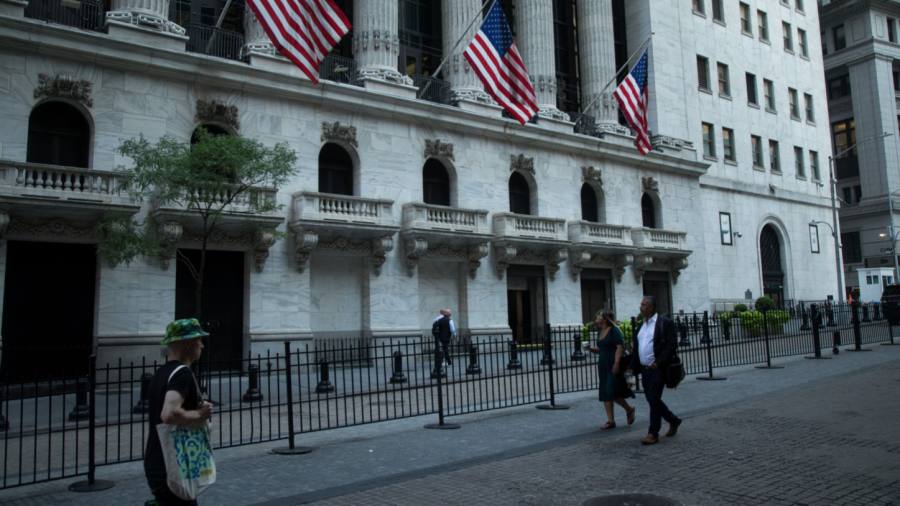
US stocks fluctuated on Monday ahead of a week of third-quarter earnings results for Big Tech companies, including Meta, Alphabet and Amazon.
Wall Street’s S&P 500 added 0.3 per cent in early New York trading. The broad-based index last week recorded its biggest five-session gain since June, adding 4.7 per cent, as investors responded to reports that the US Federal Reserve might begin to slow the rate at which it raises interest rates from December.
At the same time, the technology-heavy Nasdaq Composite slid 0.6 per cent, with US-listed shares in Chinese companies among the biggest fallers. Online shopping app Pinduoduo slid more than 25 per cent, while internet search company Baidu lost 18 per cent and ecommerce group JD.com fell 18 per cent.
Those declines on the Nasdaq came after Chinese tech stocks dropped sharply in the wake of President Xi Jinping securing a third term as party leader and as new data showed the country’s economy fell well short of Beijing’s growth target.
The moves came at the start of a week dominated by US tech earnings, with Apple, Microsoft, Alphabet and Amazon all due to report quarterly figures in the next few days.
UBS analysts said corporate financial statements in the world’s biggest economy had so far been “mixed”, with results broadly in line with the market’s “relatively cautious expectations”.
Europe’s regional Stoxx 600 gauge was up 1.2 per cent by the early afternoon in London, while Germany’s Dax rose 2.1 per cent even as S&P Global’s flash eurozone composite purchasing managers’ index, a key measure of business activity in the region, fell to its lowest level since November 2020.
Peter Vanden Houte, chief economist at ING, said Monday’s figure “clearly confirms that the eurozone economy is already in recession”, adding that forward-looking components of the survey implied there was more bad news to come.
In bond markets, the yield on the benchmark 10-year US Treasury note rose 0.04 percentage points to 4.25 per cent.
In the UK, prices for 10-year gilts climbed, pushing yields down 0.27 percentage points to 3.78 per cent, as Rishi Sunak was confirmed as the country’s next prime minister.
London’s FTSE 100 index rose 0.6 per cent, while sterling slipped 0.1 per cent against the dollar to $1.129. It also slipped 0.2 per cent against the euro to €1.144.
Derek Halpenny, head of research for global markets at MUFG Bank, warned the pound would almost certainly remain under pressure moving into the final months of the year.
“The removal of political instability in the UK is certainly a positive and could, over the short-term, provide some further support for the pound,” said Halpenny. “However, we suspect gains could be brief and would caution over how much further this news can lift the pound.”
Hong Kong’s Hang Seng index closed 6.4 per cent lower, registering its biggest drop since 2008, while the CSI 300 index of Shanghai and Shenzhen-listed equities fell 2.9 per cent.
Charlie McElligott, a strategist at Nomura, said Xi’s move to consolidate his grip on power, as well as the unexplained eviction of former leader Hu Jintao from the closing session of the 20th congress, had contributed to a “total capitulation” in Chinese equities.